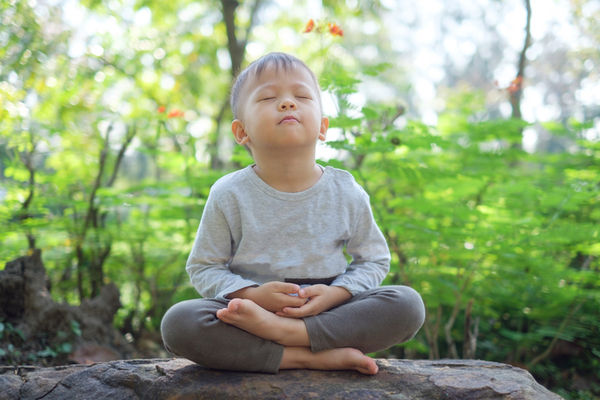
Let’s start with what it’s not. Mindfulness isn’t religion, psychotherapy, or psychiatry.
It’s not even spirituality. However, for many people it’s been a worthy compliment to all of these.
“Mindfulness is the awareness that arises from paying attention, on purpose,
in the present moment and non-judgmentally.” – Jon Kabat-Zinn
Mindfulness is often equated with Buddhism. Sometimes the word “mindfulness” is used interchangeably with “meditation”. It’s also frequently considered as just being careful with one’s thoughts and actions. There are hints of truth in all of these, but none of them is quite accurate.
Jon Kabat-Zinn is widely considered the founder of a formalized training in mindfulness known as Mindfulness-Based Stress Reduction (MBSR), but he did not invent mindfulness. That came millennia before his birth. Did anyone actually invent it? Likely not.
In the beginning, I imagine some prehistoric person probably just realized that his or her life seemed to be better when they stopped ruminating so much, and then they told their friends about it. Since then, many teachers, including the Buddha, have codified lessons in mindfulness to help make it accessible to an ever increasing swath of humanity.
Mindfulness in a Nutshell
As JKZ says in the quote above, “Mindfulness is awareness…”, but what does that mean? Aren’t we aware all the time? Yes, to some degree. However, most of us are caught up in a maelstrom of thoughts that have no bearing on what’s happening right here, right now. Sometimes these thoughts are extremely stressful.
For instance, notice how often you catch yourself planning out the day ahead or rehashing the day before, completely unaware of what is going on in this present moment. Perhaps you’re rehashing a past argument while you’re washing the dishes, or hashing out a future argument while you’re driving to work.
Now, try sensing the dish or the steering wheel in your hands. Notice what’s happening in this moment. Hear the water running or the traffic outside. That’s the awareness that Mr. Kabat-Zinn is referring to. See if you can feel the calmness that settles in when you arrest all that stressful thinking.
Try it for one minute now:
More Than Meditation
While meditating is one very well-known technique for developing mindfulness, you can become mindful throughout your day, not just while you’re sitting in silence. There are several practices that can help foster a similar type of present moment awareness:
• Mindful Yoga
Mindful yoga is comprised of very simple exercises and poses designed to help you bring attention to the body. They are not necessarily meant to help increase strength or flexibility, although they might do just that if practiced frequently.
One example is to lift your arms on an in-breath as high as is comfortable, without causing any pain or discomfort to yourself. Hold the position for a few breaths, if possible, and then bring you arms back down to your sides. Simply notice any sensations that arise, no matter how subtle, such as tingling from the increased blood flow, or the relief you might have felt in bringing the arms back down.
That’s mindfulness.
• Body Scan
A body scan, like yoga, is also a technique that helps bring awareness into our bodies, but in a different way. Through a body scan, we simply focus our attention on one body part at a time, simply observing whatever there is to observe. Whether we’re sensing comfort or discomfort, or even nothing at all, we take it in without needing to do anything about it. Just let it be as is.
Of course, if something requires medical attention or medication, you’ll attend to it in good time. The point of the body scan is to bring a kindness and curiosity to the body without layering worry or emotion on top of it.
That’s awareness.
• Mindful Activities
Mindful activities, such as brewing your morning coffee, brushing your teeth, or eating a snack are all examples of activities that you can do mindfully in the course of your day. Stopping whatever is consuming you, even momentarily, and paying close attention to a small task at hand can have a very calming effect. Maybe you’re afraid to stop because you’re on a deadline or you’re otherwise under pressure to complete something. Consider how often we’re told to reboot an electronic device to clear up the digital gunk that’s accumulated. Your mind is no different.
Doing a task slowly and deliberately, even for a few moments, can have the effect of pushing reset on our stress systems. In my personal experience, it often results in completing work faster and to a higher degree of quality.
That’s paying attention on purpose.
• Meditation
Meditation is probably the most well-known technique for cultivating mindfulness. However, it's not about having a perfectly still mind. It’s more about noticing and accepting what the mind does. The practice is quite simple, in fact:
- Sit in a comfortable but erect and alert posture, either in a chair or on a cushion. Adopt a position that’s easy to maintain throughout the meditation without inducing sleep. Don’t sit like a monk if it’s uncomfortable.
- Breathe in and out, bringing your attention to a specific focal point. For many meditators, this is often the breath, but you might also choose to focus your gaze on a visual object, sound or other sensation. By focusing your awareness on one particular object, you’ll be able to discern when the mind has wandered. When that happens, which it will, just bring your awareness back to the focal point without any criticism or sense of failure.
- Be in this focused meditation for as long as is comfortable. If you’re just beginning, that might only be 30 seconds. Increase the duration a manageable amount each time. Before long, you could be up to as much as 10 to twenty minutes a day, if not longer.
That’s being in the present moment non-judgmentally.
Who should pursue mindfulness?
Just about anyone is capable of living mindfully. However, if you have any questions whatsoever as to whether mindfulness will benefit you, check with a clinician, such as your doctor or psychiatrist. Any qualified mindfulness teacher should be able to discuss specific factors in your life that you should take into consideration. The more clear and transparent you are with them, the better equipped they will be to help you.
A world of research abounds regarding the efficacy and benefits of mindfulness, some of it more scientifically sound than others. New studies are published frequently, so I recommend Googling for resources that resonate with you. A little mindfulness can go a long way. While certain techniques can have an immediate effect, the deepest impact is achieved through daily practice. An experienced teacher can help you grow it into a way of life.
















Leave Comment Below
1 Comments